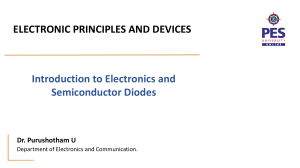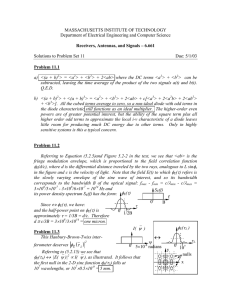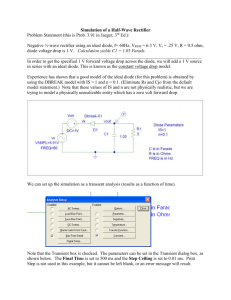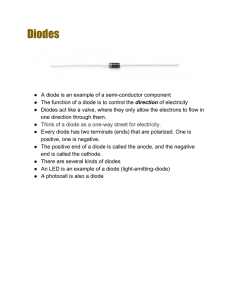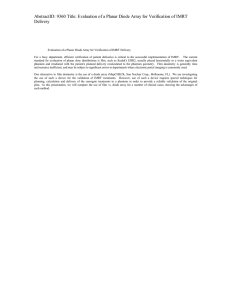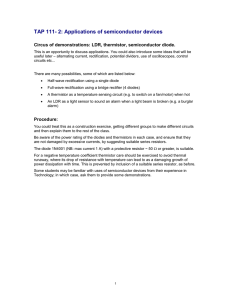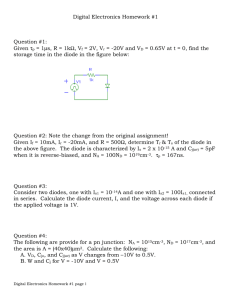AbstractID: 9069 Title: Evaluation of a commercial semiconductor detector for... dosimetry Measurement of the dose delivered to treatment fields during radiation...
advertisement
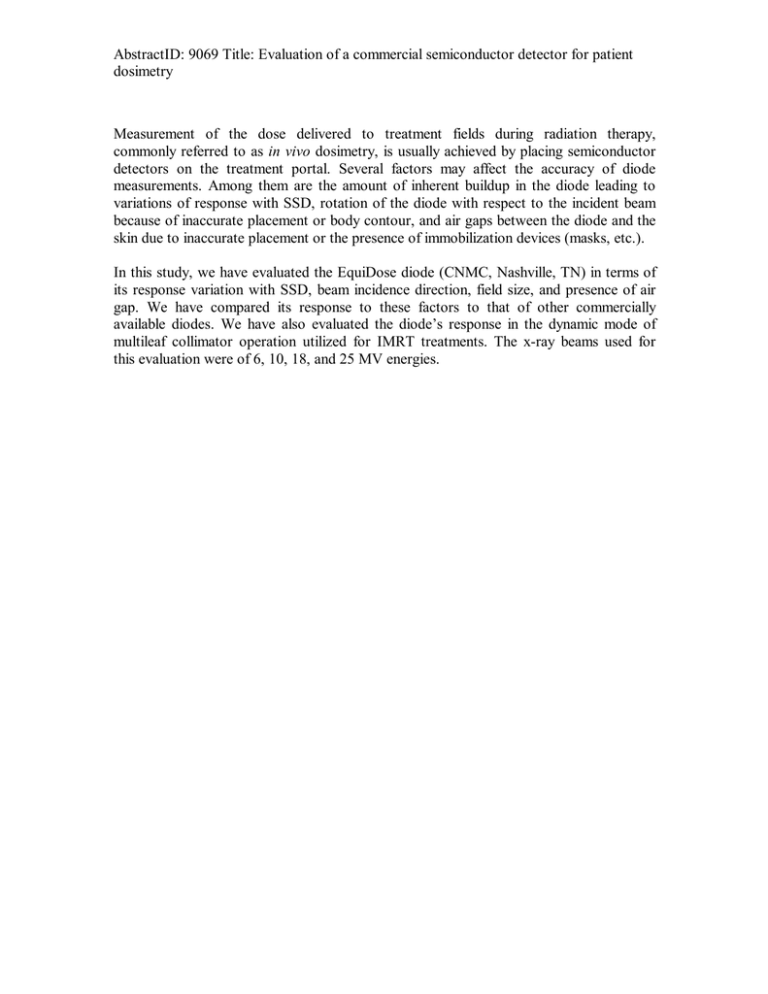
AbstractID: 9069 Title: Evaluation of a commercial semiconductor detector for patient dosimetry Measurement of the dose delivered to treatment fields during radiation therapy, commonly referred to as in vivo dosimetry, is usually achieved by placing semiconductor detectors on the treatment portal. Several factors may affect the accuracy of diode measurements. Among them are the amount of inherent buildup in the diode leading to variations of response with SSD, rotation of the diode with respect to the incident beam because of inaccurate placement or body contour, and air gaps between the diode and the skin due to inaccurate placement or the presence of immobilization devices (masks, etc.). In this study, we have evaluated the EquiDose diode (CNMC, Nashville, TN) in terms of its response variation with SSD, beam incidence direction, field size, and presence of air gap. We have compared its response to these factors to that of other commercially available diodes. We have also evaluated the diode’s response in the dynamic mode of multileaf collimator operation utilized for IMRT treatments. The x-ray beams used for this evaluation were of 6, 10, 18, and 25 MV energies.
